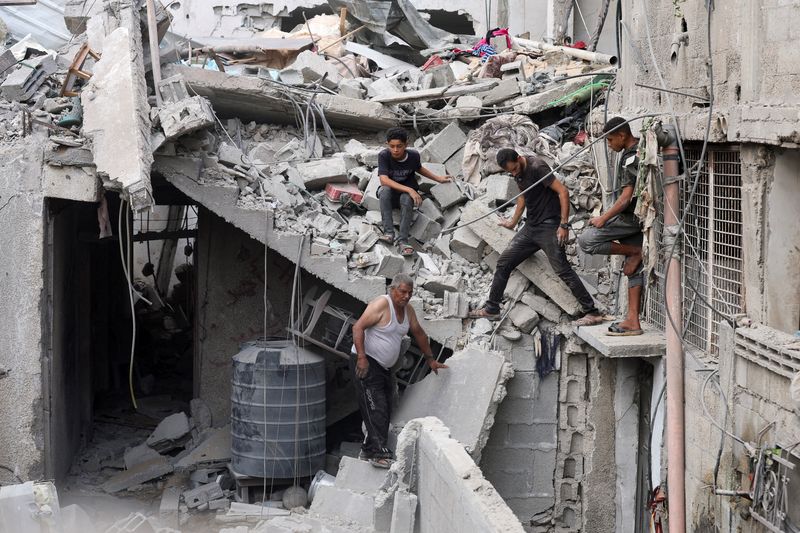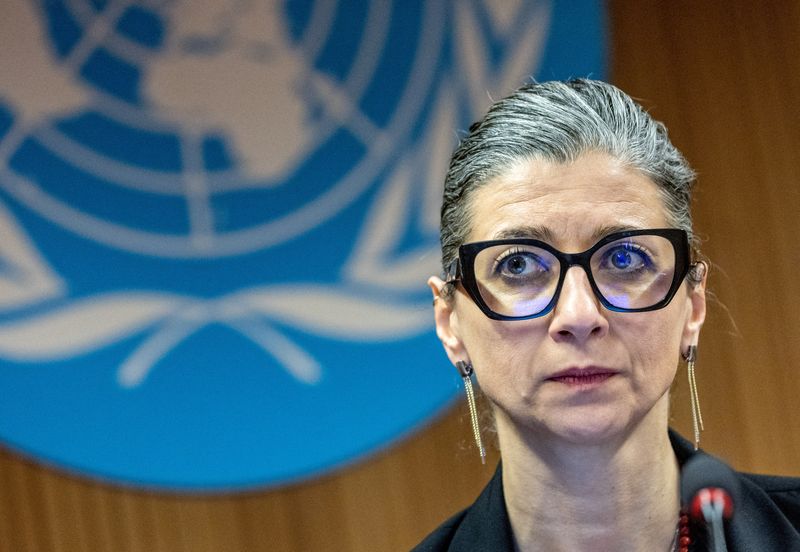By Emma Farge
GENEVA (Reuters) - U.N. human rights experts criticised mostly Western states on Monday for continuing to support Israel despite what they described as a genocide in Gaza which might turn Israel into a "pariah" nation.
The humanitarian catastrophe in Gaza as a result of more than 11 months of conflict has prompted questions about Western states' long-standing political and military support for Israel, including from the United States and Britain which provide arms.
"Shockingly, in the face of the abyss reached in the OPT (Occupied Palestinian Territories)...most member states remained inactive at best, or actively aiding and assisting Israel's criminal conduct," Francesca Albanese, U.N. Special Rapporteur on human rights in the OPT, told a press conference in Geneva, repeating allegations of genocide.
Israel denies the allegations and says it takes steps to reduce the risk of harm to civilians and that at least a third of the Palestinian fatalities in Gaza are militants.
Albanese, an Italian lawyer, said she was referring to Western states as well as some Gulf nations and others.
"I think it's unavoidable for Israel to become a pariah in the face of its continuous, relentless, vilifying assault of the United Nations, on top of millions of Palestinians," she said, citing verbal and military attacks on U.N. facilities in Gaza.
She also questioned Israel's right to a seat at the United Nations, acquired in 1949. "Should there be a consideration of its membership as part of this organisation which Israel seems to have zero respect for?" she asked.
In response to her comments, Israel's permanent mission to the U.N. in Geneva criticised Albanese. "She is not fit to hold any position at the United Nations, and this has been made clear by many," it said.
In the past, her remarks on the Israel-Hamas conflict have drawn scrutiny, including from a U.S. ambassador in Geneva who said she has a history of using "antisemitic tropes".

Albanese was joined by three other U.N. independent experts who accused Western countries of hypocrisy and double standards, for example by being more vocal over perceived rights' violations by Russia since its invasion of Ukraine than of Israel's actions in Gaza.
They are among dozens of independent human rights experts mandated by the United Nations to report and advise on specific themes and crises. Their views do not reflect those of the global body as a whole.
